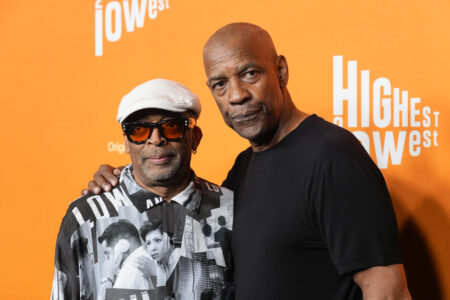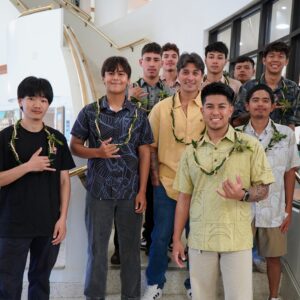The State of Aloha
Takao Ozawa was determined. He was 19 when he left Japan, the land of his birth, and never returned. Ozawa moved to California in 1894 and settled in the East Bay across from San Francisco. Less than a decade later, he filed in a courthouse in Alameda County a signed declaration of his intention to someday become an American citizen.
He graduated from Berkeley High School and enrolled at the University of California a year later. His education was cut short by the earthquake of 1906. After that, he left California and moved to Honolulu in the Territory of Hawai’i. He settled down there, got married and had two children. He even found work as a clerk with Theo Davies, one of the established sugar companies that made up the Big Five.
Unlike most Japanese subjects in Hawai’i, he did not register his family with the Japanese Consulate. Nor did he send his children to Japanese schools and churches. English was the language of the home. They converted to Christianity.
A surviving picture of Ozawa depicts a clear-eyed young man with short hair, neatly combed bangs and a near-perfect and thick moustache under his nose. At first glance he looks like a nervous New England haole. In 1914 — after living in the country for more than 20 years — Ozawa applied for American citizenship. He did everything he could under the law to meet its requirements.
He was denied. He wasn’t the problem. It was the law.
Citizenship was limited to “free white persons,” “aliens of African nativity” and “persons of African descent.” Ozawa challenged the denial by arguing that a “free white person” was not just Caucasians and that his application for citizenship should be granted. Ozawa appealed to the Ninth Circuit in San Francisco. He lost again.
Ozawa even wrote his own brief and crafted is argument without a lawyer. He backed his argument with seemingly solid case law showing that in some cases, non-Europeans passed as “free white persons.” His case sparked a great deal of publicity and soon enough lawyers readily helped him take his case to the Supreme Court of the United States.
In 1923, the high court issued its decision. Ozawa v. United States was a massive disappointment for many in the islands. The court conceded that Ozawa was “well qualified by character and education for citizenship.”
The problem came down to race. The court ruled that determining a “white person” based on skin color was too hard. It “differs greatly among persons of the same race, even among Anglo-Saxons, ranging by imperceptible gradations from the fair blond to the swarthy brunette, the latter being darker than many of the lighter hugged persons” of other races. The court ruled that “free white persons” meant Caucasians. Ozawa lost again.
But despite his losses, Ozawa never left Hawai’i. He started a business in Kaimuki in 1926, four years after the terrible decision. Kaimuki Dry Goods Ltd. became a landmark on Waialae Avenue. He and his wife retired from the business on the eve of World War II.
His daughter Edith Takeya ran the business for decades. She died in 2009 and is buried in Oahu Cemetery with her parents. The business Ozawa started is still going strong.
As for the Supreme Court, it still kept the door shut for Asian immigrants. A year after Ozawa’s case, Bhagat Singh Thind, a Sikh soldier from Oregon, argued that he could be naturalized because he’s from the Punjab region in India. He cited scientific findings that peoples of northwestern India were Caucasian or Aryan races.
The court ignored the science and held that Caucasian referred to the common understanding of the words, not its scientific one. Like Ozawa, Thind was denied citizenship (though he later became a citizen through his military service). The court reinforced the racist statute with a white supremacist interpretation. The sordid statute and its line of cases ended in 1953 when the law was repealed.
But before 21st century readers thank our lucky stars that those days are behind us, let’s not forget what happened when former President Donald Trump issued his executive order banning immigration from seven predominantly Muslim countries.
Our state established Supreme Court precedent by challenging the order. And just like Ozawa and Thind a century ago, we lost. The court deferred to the president’s power to discriminate against Asian and African Muslim immigrants. It refused to curb executive power even when it advances racist policies. That wasn’t some sepia-toned time of generations past. That was 2018.
It all reminds me about something I learned as a young lawyer. The outcome of a case does not make it right or wrong. A win in court doesn’t make your cause just. And, thankfully, losing doesn’t automatically mean you’re wrong. Just ask the Ozawas.
* Ben Lowenthal is a trial and appellate lawyer, currently with the Office of the Public Defender, who grew up on Maui. His email is 808stateofaloha@gmail.com.




